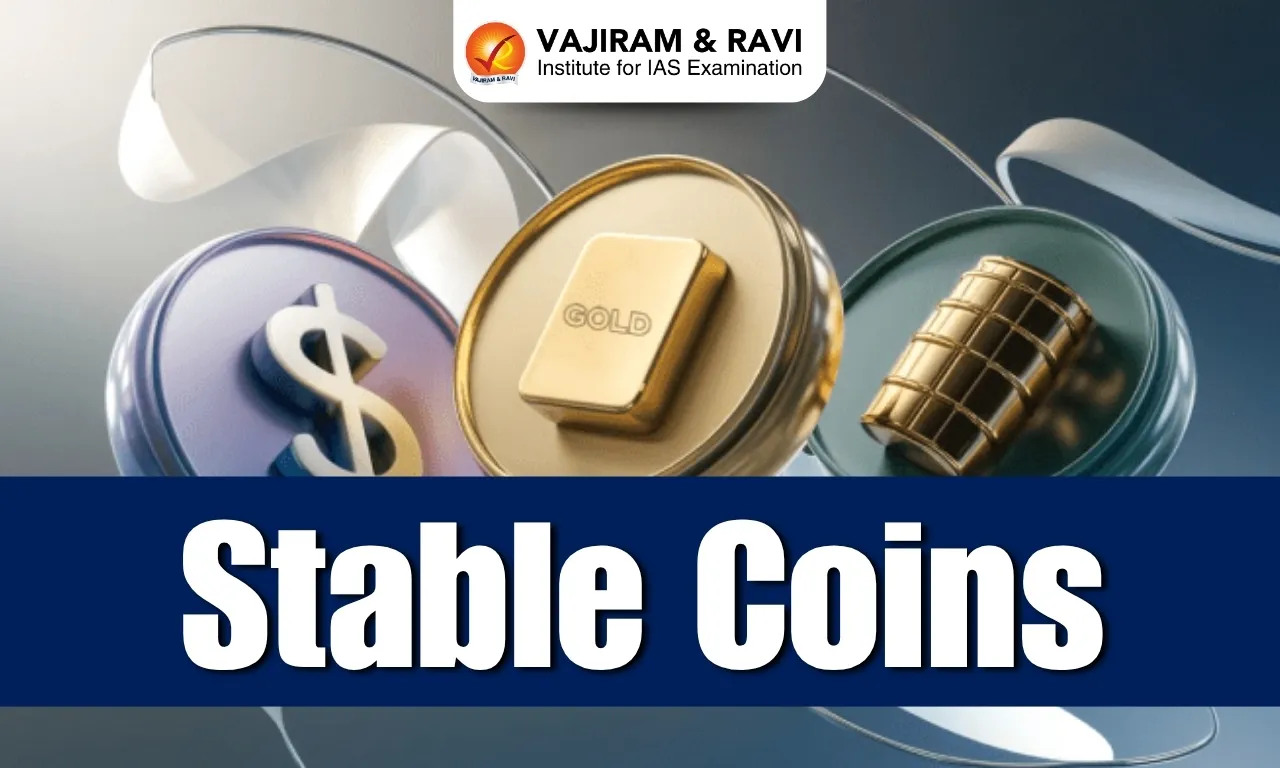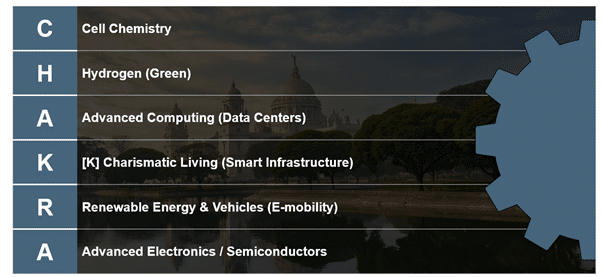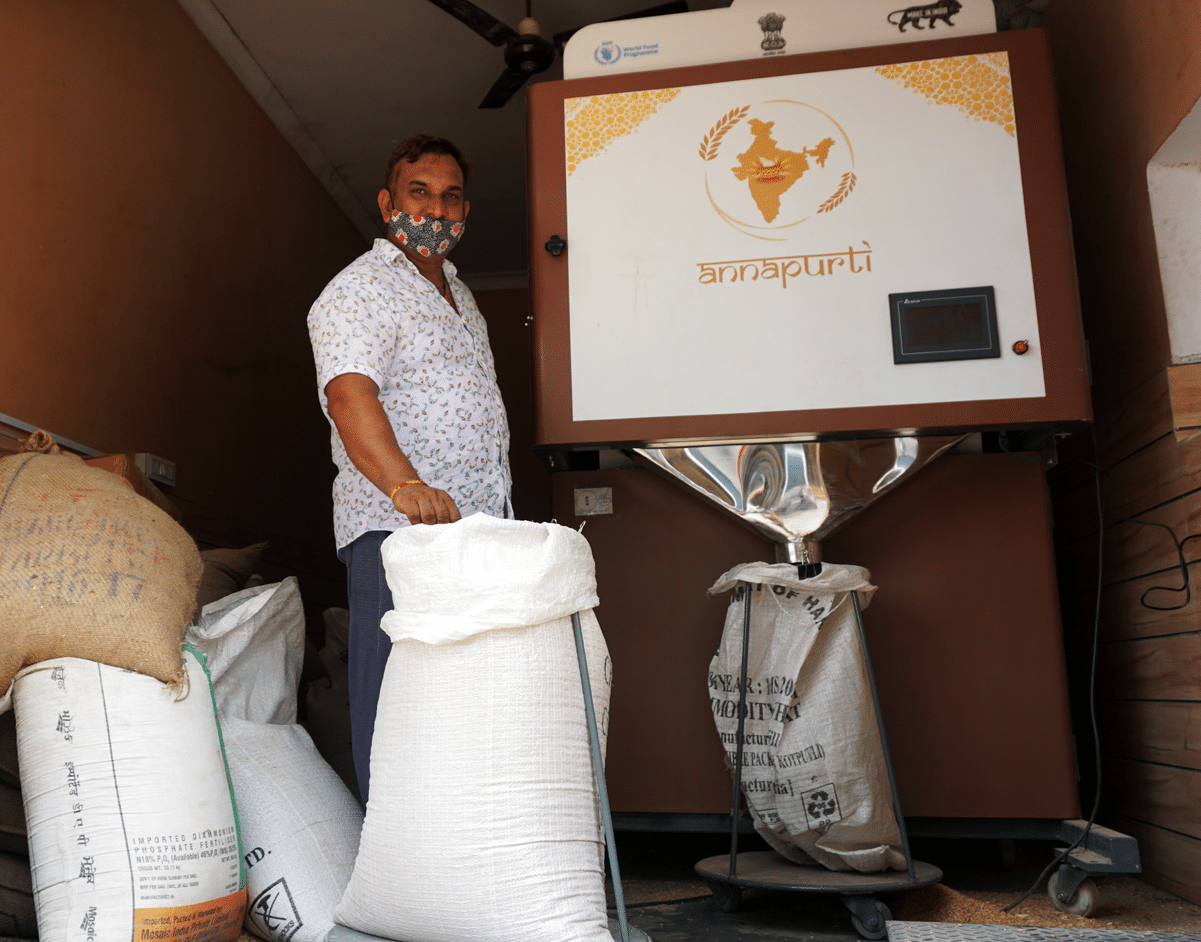Stable Coins Latest News
The US House of Representatives recently passed the Genesis Act, a bill to regulate US dollar-pegged stablecoins.
About Stable Coins
- Stablecoins are a type of cryptocurrency whose value is pegged to another asset, such as a fiat currency or gold, to maintain a stable price.
- They strive to provide an alternative to the high volatility of popular cryptocurrencies, making them potentially more suitable for common transactions.
- Stablecoins can be utilized in various blockchain-based financial services and can even be used to pay for goods and services.
- Although the term “stablecoin” is commonly used, there is no guarantee that the asset will maintain a stable value in relation to the value of the reference asset when traded on secondary markets or that the reserve of assets, if there is one, will be adequate to satisfy all redemptions.
- Types of Stablecoins: There are primarily three types of stablecoins: fiat-collateralized, crypto-collateralized, and non-collateralized (algorithmic).
- Fiat-collateralized stablecoins are pegged to a specific asset, such as a fiat currency. The entity behind the stablecoin maintains a reserve of the asset or assets backing the stablecoin, supporting the value of the digital currency.
- On the other hand, non-collateralized (algorithmic) stablecoins use software algorithms to automatically adjust the supply of the stablecoin based on demand, aiming to maintain a stable price.
What is Cryptocurrency?
- Cryptocurrencies are digital or virtual currencies in which encryption techniques are used to regulate the generation of their units and verify the transfer of funds.
- These currencies operate independently of a central bank.
- The economic transactions underlying cryptocurrency are decentralized, distributed, and disbursed.
- The first and most famous cryptocurrency, Bitcoin was introduced in 2009.
- Technology:
- Most cryptocurrencies are built on blockchain technology.
- Blockchain is a decentralized and distributed database on a peer-to-peer network which works on the basis of a consensus mechanism involving every node (computer) on the network.
- Blockchain is a peer-to-peer distributed network that records a public history of transactions without actually recording identities of the parties or the transaction details.
Source: NOA
Last updated on January, 2026
→ Check out the latest UPSC Syllabus 2026 here.
→ Join Vajiram & Ravi’s Interview Guidance Programme for expert help to crack your final UPSC stage.
→ UPSC Mains Result 2025 is now out.
→ UPSC Notification 2026 Postponed for CSE & IFS which was scheduled to be released on 14 January 2026.
→ UPSC Calendar 2026 has been released.
→ UPSC Prelims 2026 will be conducted on 24th May, 2026 & UPSC Mains 2026 will be conducted on 21st August 2026.
→ The UPSC Selection Process is of 3 stages-Prelims, Mains and Interview.
→ Prepare effectively with Vajiram & Ravi’s UPSC Prelims Test Series 2026 featuring full-length mock tests, detailed solutions, and performance analysis.
→ Enroll in Vajiram & Ravi’s UPSC Mains Test Series 2026 for structured answer writing practice, expert evaluation, and exam-oriented feedback.
→ Join Vajiram & Ravi’s Best UPSC Mentorship Program for personalized guidance, strategy planning, and one-to-one support from experienced mentors.
→ UPSC Result 2024 is released with latest UPSC Marksheet 2024. Check Now!
→ UPSC Toppers List 2024 is released now. Shakti Dubey is UPSC AIR 1 2024 Topper.
→ Also check Best UPSC Coaching in India
Stable Coins FAQs
Q1. What are Stable Coins?+
Q2. What is the primary goal of stablecoins?+
Q3. What are stablecoins typically pegged to?+
Tags: prelims pointers stable coins upsc current affairs upsc prelims current affairs

















